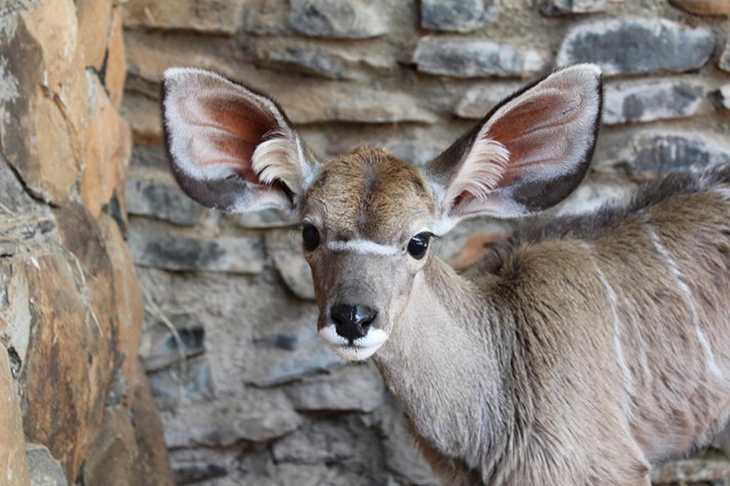Laikipia, Kenya
On 5 April this year, my neighbour Torrie’s sister Vicki died during an operation in a Nairobi hospital. Torrie, who is the livestock manager on the next-door ranch of Loisaba, adored her and was terribly sad, as was Don, her partner for 40 years. To me, Torrie resembles a thin Dylan Thomas who has been left to bake in the tropical sun for decades. He spends his days out in the heat, caring for 4,000 head of cattle, 500 sheep and goats and 150 camels — and he does his job very well, losing few animals. On the evening of Good Friday, exactly a fortnight after his sister’s death, rangers brought in a baby greater kudu antelope. She had big eyes, enormous pink ears, a white chevron across her face, a coat of reddish-brown soft fur and several vertical white stripes down her flanks. Local pastoralists had rescued her after predators ate the mother, but she had abrasions from where she had been tied by the legs and she had a nasty, bleeding hole in one of her ears. She was a day away from dying of hunger. Torrie works alongside my close friend Tom, who has run Loisaba for many years and loves animals. Loisaba is among the most important wildlife conservancies in Kenya, with elephant, lion and all of Africa’s most extraordinary creatures. It is also home to a group of very rare melanistic leopards, or black panthers. Over the years Tom and his wife Jo have cared for a succession of orphaned creatures, including two giraffe named Bungaloo and Lawrence, an eland named Christmas, Moto Moto the oryx, two zebras called Drought and Hombre, sundry antelope and owls. We once encountered Tom and Jo walking on their grassy airstrip with a giraffe, two geese, a cat, three dogs — one of them a Staffordshire terrier called Hendrix — and Janis Chop-lin the warthog. Tom could have taken the baby kudu antelope in and cared for her, but instead he put Torrie in charge and told him to call her Vicki. ‘I lost one Vicki and got another,’ Torrie told me. ‘She kept me so occupied I didn’t have time to dwell on my sister.’ Very young orphaned wild creatures seem to die of sadness, and the most critical time is the middle of the night when they feel most lonely. Torrie was up at 3 a.m. to feed Vicki, rigging up a plastic Coke bottle with a teat. In a day Vicki consumes about three litres of goat’s milk mixed with warm water into which a teaspoon of butter is melted. For several weeks Torrie fed her six times around the clock. ‘She still wakes me up at night, crying just for reassurance that she hasn’t been abandoned.’ Vicki makes some interesting noises: a bleat that can get very loud and a strange bark when she’s excited. When he comes home from tending cattle she is waiting at the gate for him. Unlike bull kudus, she will never grow horns, but when she’s hungry for milk she butts him on the legs and he is covered in bruises. ‘She’s sweet, but she’s big.’ I ask if Vicki is a surrogate for his sister. ‘Not a surrogate, but a rebirth. Little Vicki certainly has my sister’s traits. She’s demanding. She tells me to hurry up and wait. We’ve become good pals.’ Torrie has never had children and compares himself to ‘those sorts of people who have no kids and keep dogs’. In the past month, Torrie has taken Vicki out to teach her how to browse on the acacia thorns around his house. She will be weaned gradually until, at around six months, she will live mainly by browsing leaves on the rocky escarpments around Loisaba where greater kudu find safety. There are only a few hundred of this northern race of kudu left, since these quite tame creatures have been hunted for their meat and driven out of their habitat. On Loisaba there are around 40 of them, and at between 12 months and three years Vicki will mate with one of the kudu bulls, who sport long curly horns that look like the shofars blown at Rosh Hashanah. I want to know how Torrie will feel when Vicki returns to the wild. ‘Extremely happy. I’ll miss her but she’s not going far. She knows who I am and that will never go away.’ Aidan Hartley
Aidan Hartley
Wild life | 27 June 2019
Looking after the antelope kept Torrie so busy he didn’t have time to dwell on the loss of his sister

issue 29 June 2019





Comments